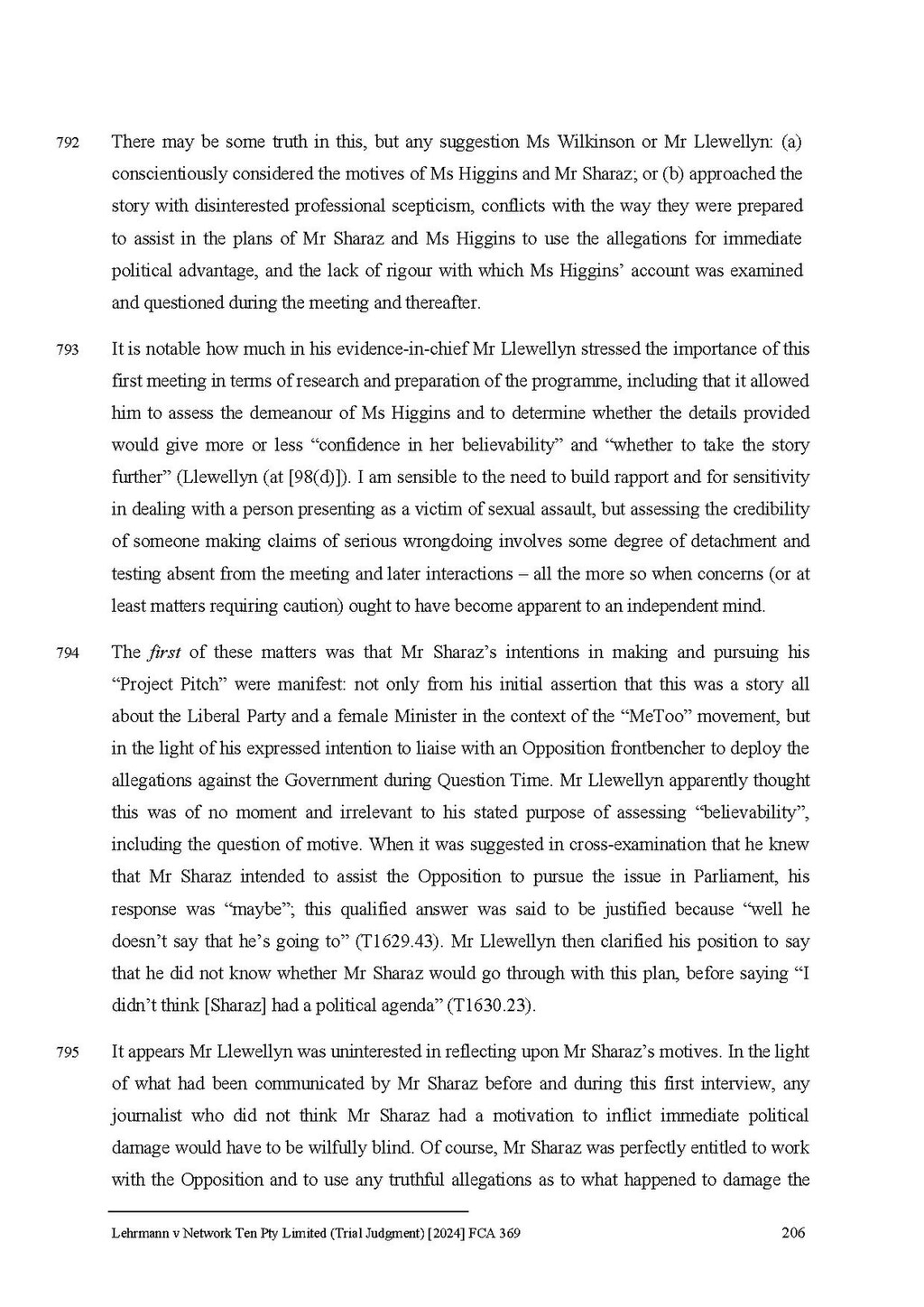792 There may be some truth in this, but any suggestion Ms Wilkinson or Mr Llewellyn: (a) conscientiously considered the motives of Ms Higgins and Mr Sharaz; or (b) approached the story with disinterested professional scepticism, conflicts with the way they were prepared to assist in the plans of Mr Sharaz and Ms Higgins to use the allegations for immediate political advantage, and the lack of rigour with which Ms Higgins' account was examined and questioned during the meeting and thereafter.
793 It is notable how much in his evidence-in-chief Mr Llewellyn stressed the importance of this first meeting in terms of research and preparation of the programme, including that it allowed him to assess the demeanour of Ms Higgins and to determine whether the details provided would give more or less "confidence in her believability" and "whether to take the story further" (Llewellyn (at [98(d)]). I am sensible to the need to build rapport and for sensitivity in dealing with a person presenting as a victim of sexual assault, but assessing the credibility of someone making claims of serious wrongdoing involves some degree of detachment and testing absent from the meeting and later interactions – all the more so when concerns (or at least matters requiring caution) ought to have become apparent to an independent mind.
794 The first of these matters was that Mr Sharaz's intentions in making and pursuing his "Project Pitch" were manifest: not only from his initial assertion that this was a story all about the Liberal Party and a female Minister in the context of the "MeToo" movement, but in the light of his expressed intention to liaise with an Opposition frontbencher to deploy the allegations against the Government during Question Time. Mr Llewellyn apparently thought this was of no moment and irrelevant to his stated purpose of assessing "believability", including the question of motive. When it was suggested in cross-examination that he knew that Mr Sharaz intended to assist the Opposition to pursue the issue in Parliament, his response was "maybe"; this qualified answer was said to be justified because "well he doesn't say that he's going to" (T1629.43). Mr Llewellyn then clarified his position to say that he did not know whether Mr Sharaz would go through with this plan, before saying "I didn't think [Sharaz] had a political agenda" (T1630.23).
795 It appears Mr Llewellyn was uninterested in reflecting upon Mr Sharaz's motives. In the light of what had been communicated by Mr Sharaz before and during this first interview, any journalist who did not think Mr Sharaz had a motivation to inflict immediate political damage would have to be wilfully blind. Of course, Mr Sharaz was perfectly entitled to work with the Opposition and to use any truthful allegations as to what happened to damage the
